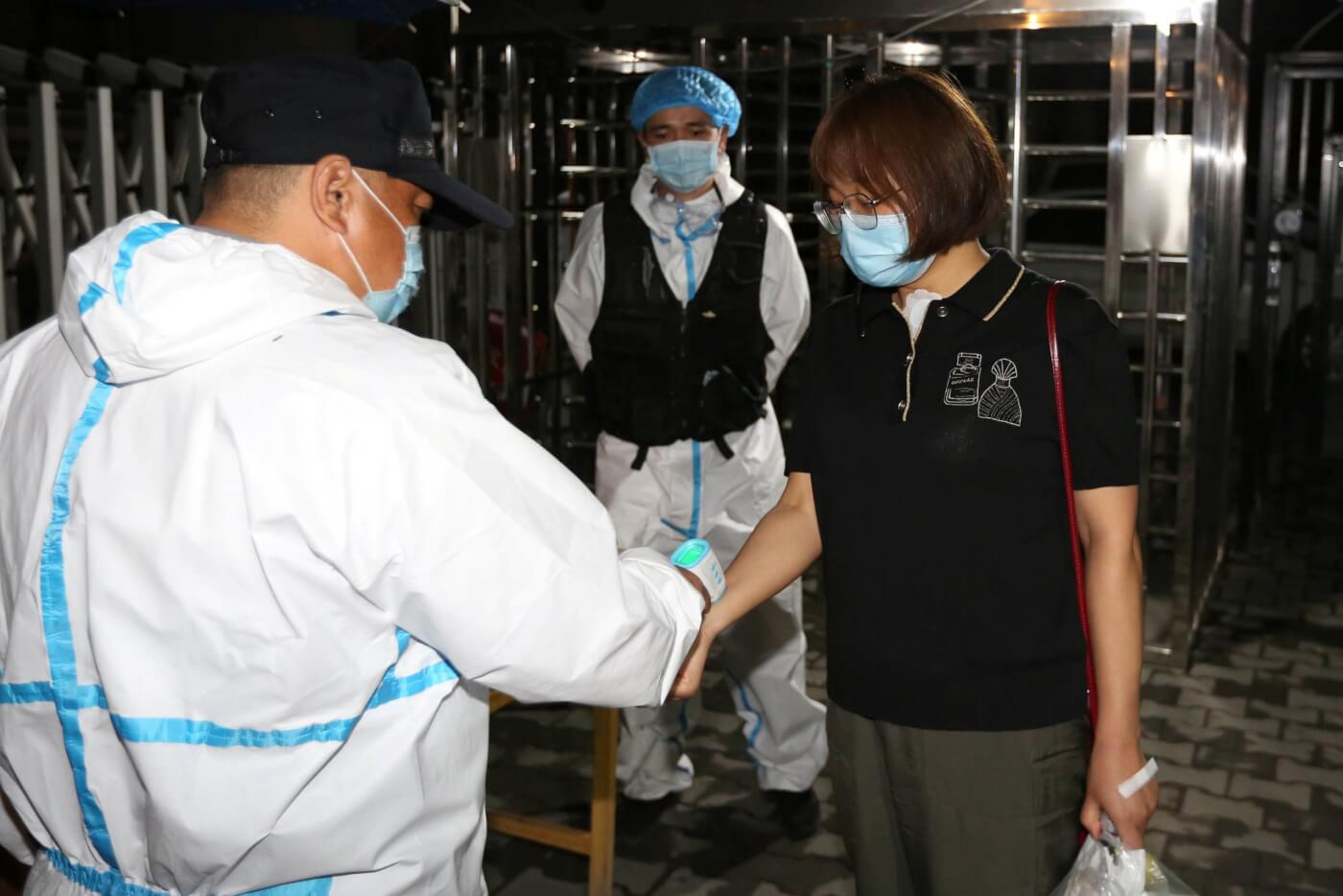The widespread abuse of residents in the semi-autonomous Xinjiang region of China has continued, according to a series of posts online. Residents have been forcibly medicated with traditional Chinese medicine, handcuffed to buildings and ordered to stay inside for weeks at a time as part of the “wartime state” of lockdown being imposed in Urumqi, the region’s capital.
The capital has been imposing the draconian measures – aimed at tackling COVID-19 – for over a month. The area witnessed a cluster of cases in July despite the virus largely being under control in the rest of China.
The city has documented more than 531 cases in the second half of August alone.
Yet, despite the city not having a new positive test in the past eight days, authorities decided to extend the quarantine which has forcibly kept residents at home or in designated locations. This prompted internet uses to flood social media on Friday 21 August, lamenting the overly harsh measures being imposed on them.
Multiple accounts told of how they had been chained to buildings when they attempted to leave their homes. One user described how he had been kept in a quarantine centre for two months and had been required to take the medicine Lianhua Qingwen, an herbal remedy being pushed as a treatment for Covid-19 in China.
Speaking to the Guardian, a relative of a family in Urumqi said that their family had been given the medicine every day but was not forced to drink it.
Unverified videos appeared to show residents vent their frustrations by screaming from their apartments. A separate notice posted online by a residential compound warned that anyone who participated in the “roaring” activity on 23 August had committed an “illegal act”.
新浪微博上乌鲁木齐超话的一段视频,上千次转发。原文链接:https://t.co/Nrrdd7eCGf pic.twitter.com/TZsSGLPv23
— lidang 立党 (@lidangzzz) August 22, 2020
The residential compound’s notice read:
“Residents should strengthen their sense of social responsibility to prevent them from being used by those with evil intentions and lead to wrong guidance of public opinion,”
With separate posts warning that everything from social credit rating to their children’s school admissions could be affected.
The Xinjiang region, which has gained international notoriety for its mass detention of the Uighurs, is no stranger to covering up it’s abuses. Leaked notices by authorities online have shown residents being ordered to delete their Weibo accounts due to the “release of bad information”.
Hashtags pertaining to recent events in Urumqi also appeared to be blocked over the weekend and some users claimed they were ordered to post positive messages about the city’s response to Covid.
Despite the attempted silencing, images and posts have filtered through to popular social media platforms such as Douban and Twitter.
One user wrote:
“When things reach a certain point, the voice of the public cannot be suppressed. If it is blocked in one place, it will move to another. If blocked there, it will move again and new ways will be found. Collective memory cannot be erased.”
The Global Times, a state run newspaper attributed the extreme measures to the different “social norms in Xinjiang, where people … enjoy hanging out outdoors and like to gather together”.

